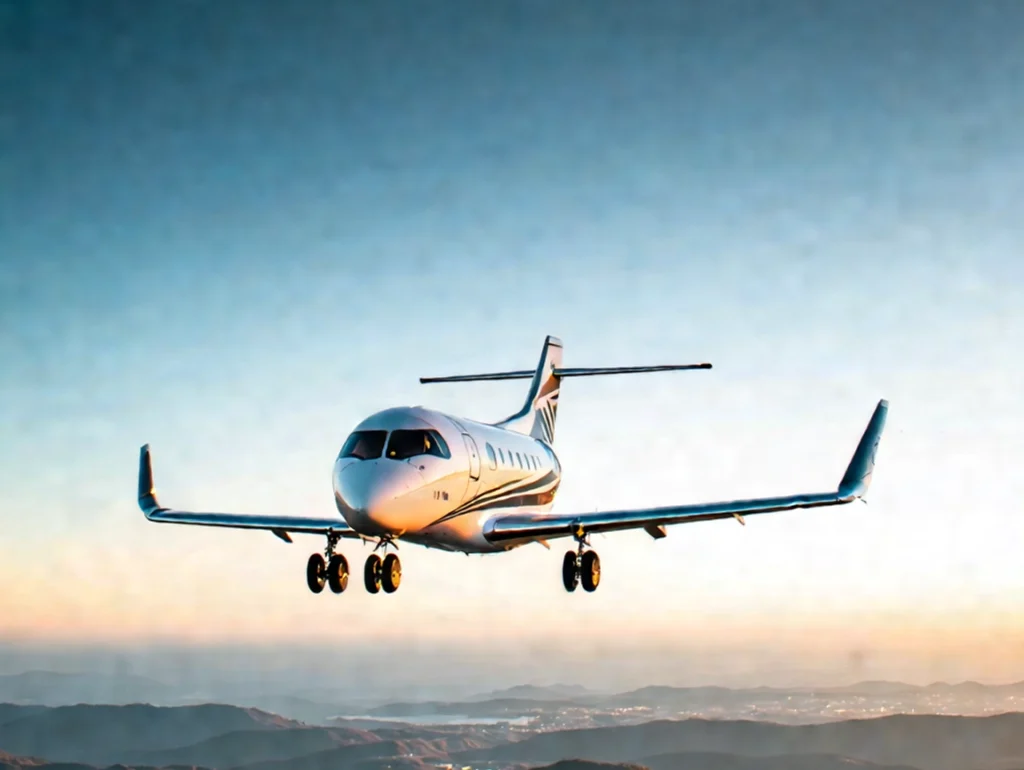Private aviation is rapidly evolving, driven by technological advancements, changing consumer demands, and global shifts in travel behavior. As the industry continues to innovate, several key trends are shaping the future of private aviation. Here’s what to watch for in the coming years.
1. Sustainable Aviation Initiatives
Sustainable Aviation Fuel (SAF):
- Increasing adoption of SAF to reduce carbon emissions.
- Major private jet operators committing to net-zero goals by 2030 and beyond.
Eco-Friendly Aircraft Designs:
- Development of lighter, more fuel-efficient jets.
- Use of composite materials to improve aerodynamics and reduce fuel consumption.
Carbon Offset Programs:
- Growing popularity of offsetting carbon emissions through reforestation and renewable energy projects.
2. The Rise of Electric and Hybrid Aircraft
Electric Vertical Takeoff and Landing (eVTOL) Aircraft:
- Companies like Joby Aviation and Lilium leading the charge.
- Promising zero-emission, short-distance travel solutions for urban areas.
Hybrid Propulsion Systems:
- Combining traditional fuel engines with electric motors for improved efficiency.
- Expected to reduce fuel consumption and noise pollution.
3. Advancements in Aircraft Technology
Autonomous Flight Systems:
- AI-driven autopilot technology reducing pilot workload.
- Potential for fully autonomous private jets in the distant future.
Supersonic Travel:
- Companies like Boom Supersonic working on jets capable of cutting travel times in half.
- Reimagining long-haul flights with faster, more efficient aircraft.
4. Personalized In-Flight Experiences
Smart Cabin Technology:
- Integration of IoT for personalized lighting, climate control, and entertainment.
- Voice-activated controls and AI-driven in-flight services.
Wellness-Centric Design:
- Focus on passenger well-being with air purification systems, noise reduction, and ergonomic seating.
- In-flight fitness and meditation options for long-haul journeys.
5. Flexible Ownership and Membership Models
On-Demand Charter Apps:
- Growth of digital platforms simplifying private jet booking.
- Real-time pricing, availability, and instant booking options.
Fractional Ownership Evolution:
- More flexible programs catering to occasional flyers.
- Pay-as-you-fly models gaining popularity for cost-conscious travelers.
6. Increased Focus on Health and Safety
Contactless Travel:
- Enhanced hygiene protocols and touchless boarding processes.
- Private terminals offering expedited, socially distanced services.
Advanced Air Filtration:
- HEPA filters and UV light systems becoming standard for improved cabin air quality.
7. Global Expansion of Private Jet Accessibility
Emerging Markets:
- Growing demand for private aviation in Asia-Pacific, the Middle East, and Africa.
- Infrastructure developments to support increased private jet traffic.
Regional Connectivity:
- Smaller, more efficient aircraft enabling direct access to remote locations.
- Expansion of regional air mobility networks.
8. Integration of Artificial Intelligence (AI) and Data Analytics
Predictive Maintenance:
- AI-driven analytics for proactive aircraft maintenance, enhancing safety and reliability.
Optimized Flight Operations:
- Use of big data to optimize routes, reduce fuel consumption, and improve scheduling.
Conclusion
The future of private aviation is dynamic, with sustainability, technology, and personalized experiences at the forefront. As new trends emerge, private jet travel will become more efficient, eco-friendly, and accessible. For the latest in private aviation innovations or to book your next flight, contact SkyAccess directly.

